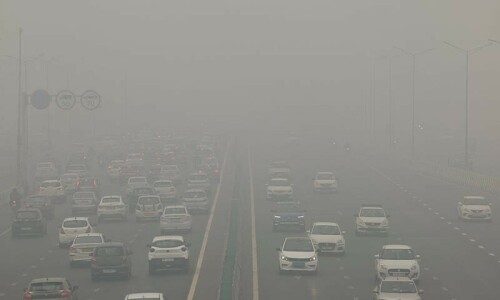ISLAMABAD: Islamabad Policy Institute (IPI) on Thursday expressed its disappointment with the Arab-Islamic Summit, calling it a missed opportunity to address the humanitarian crisis in Palestine and Israeli aggression against Lebanon and Syria.
The summit held in Riyadh on November 11 lacked concrete measures, offering only symbolic support instead of practical relief for Palestinians, said the IPI in a statement.
“IPI had at a conference held before the summit demanded of the Muslim leaders to agree on concrete measures to halt Israel’s escalating violence in Palestine and its aggression toward Muslim nations.”
According to IPI, the summit’s communique failed to deliver tangible results, relying heavily on appeals to international organisations like the United Nations. The IPI criticised this approach as ineffective, given the UN’s limited impact in curbing Israel’s policies.
“By relying on these ineffective entities, the summit missed a vital opportunity to leverage the political and economic influence of Muslim nations to influence Israel directly,” the statement said.
Dr Shireen Mazari, chairperson of IPI, was blunt in her assessment of the summit’s shortcomings. “The Arab League-OIC Summit has once again been a disappointment. At a time when there was an expectation that leaders of the Ummah would take concrete action against rogue Israel, there was nothing. At a minimal level, there should have been a withdrawal of diplomatic recognition and the imposition of trade sanctions. Yet, once again, we are left with empty rhetoric.”
The statement emphasised the need for economic sanctions, a boycott of Israeli goods or direct support for Palestinian resistance – actions that could be implemented without waiting for international consensus. Instead, the communique defaulted to calls for UN intervention, lacking the resolve or coordination to achieve measurable outcomes.
The summit’s inability to address Gaza’s critical humanitarian needs was also criticised by the think tank.
Gazans had hoped the summit would secure the opening of the Rafah crossing, facilitate medical and food supplies, and organise evacuations for the sick and injured. Yet, no concrete measures were taken to address these immediate needs.
Ms Mazari remarked, “Some non-Muslim states have done more than any Muslim state,” calling the lack of action “shocking and disappointing.”
The statement also raised concerns about the summit’s continued focus on the two-state solution, given recent statements from Israeli leaders advocating annexation of the West Bank.
“Instead of clinging to outdated diplomatic solutions, the summit should prioritise enforceable actions such as an arms embargo on Israel, economic restrictions and diplomatic isolation until Israel ceases its aggressive policies,” the statement said.
Published in Dawn, November 15th, 2024















































Dear visitor, the comments section is undergoing an overhaul and will return soon.